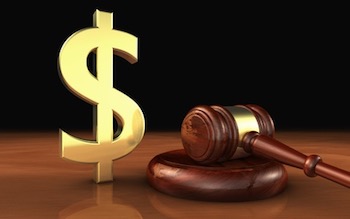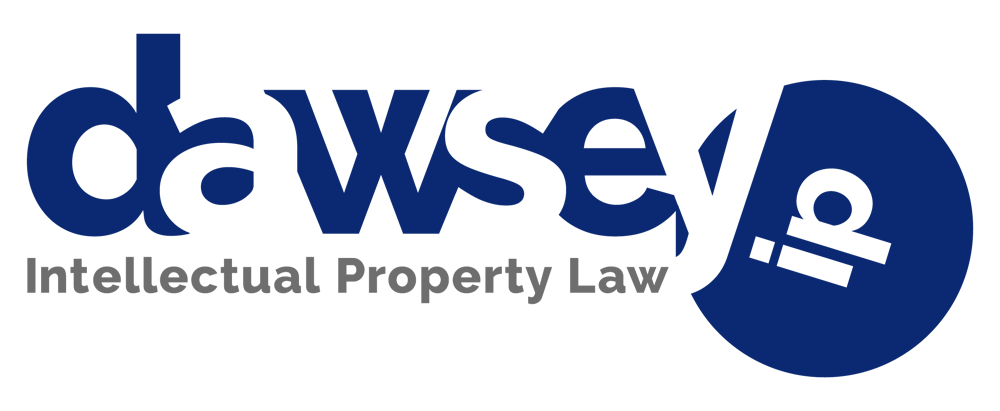
Willful Patent Infringement: Opinions of Patent Counsel & Waiver of Privilege
© 2006, Gallagher & Dawsey Co., LPA
November 2006
As is often the case in patent infringement litigation, a patentee sues a defendant claiming that the defendant is willfully infringing a patent. If the patentee is successful in proving willful infringement, the defendant may be liable for treble damages as well as attorneys’ fees. In the past, an opinion of counsel was necessary to rebut a charge of willful infringement, and failure to obtain or produce such an opinion resulted in an adverse inference that the opinion would have been unfavorable. However, in Knorr-Bremse Systeme Fuer Nutzfahrzeuge GmbH v. Dana Corp., the Federal Circuit reversed this long-standing precedent by holding that no adverse inference should be drawn from a defendant’s failure to obtain an opinion of counsel or a defendant’s invocation of the attorney-client privilege to prevent discovery of an opinion of counsel. 383 F.3d 1337 (Fed. Cir. 2004).
So after Knorr-Bremse, do parties accused of willful patent infringement still need to seek an opinion of counsel? Some commentators have suggested that the Knorr-Bremse decision could result in fewer accused infringers seeking an opinion of counsel to defend against a charge of willful infringement. However, recent decisions show that a competent and timely sought opinion of counsel remains crucial to avoiding a finding of willfulness.
Opinions of Patent Counsel Still Play Significant Role in Willfulness Determination
Although the Knorr-Bremse decision removed the adverse inference rule, it did not affect the affirmative duty of care to avoid infringing the known patent rights of others. Included in this affirmative duty of care is the duty to seek and obtain competent legal advice before initiating any possible infringing activity. Moreover, the Knorr-Bremse decision reaffirms that willfulness is to be determined by a totality of the circumstances analysis. One of the most important factors considered in this totality of the circumstances analysis is whether the defendant obtained a timely and competent opinion of counsel and relied on such opinion. A couple of recent decisions illustrate this point.
In Golden Blount, Inc. v. Robert H. Peterson Co., the defendant did not seek a written opinion of counsel during the two and a half years after becoming aware of the patentee’s patent. 2006 WL 335607 (Fed. Cir. 2006). The defendant did, however, obtain oral opinions that were rendered without counsel having examined either the patent’s prosecution history or the device itself. The court noted that when the defendant chose to rely on these opinions, the competence of the opinions and the facts surrounding defendant’s obtaining those opinions were relevant to the willfulness issue.
In Imonex Services, Inc. v. W.H. Munzprufer Dietmar Trenner GmbH, the Federal Circuit affirmed the district court’s finding of willful infringement based, in part, on defendants’ failure to obtain a timely opinion of counsel. 2005 WL 1204855 (Fed. Cir. 2005). The court noted that the determination of willfulness hinged on when the defendants became aware of plaintiff’s patents and their conduct after that time. The evidence tended to show that defendants were aware of plaintiff’s patents well before the infringement suit was filed. However, defendants did not seek an opinion of counsel regarding infringement until after they were sued. The court concluded that the defendants’ actions after receiving notice of plaintiff’s patents and the timing of the infringement opinion provided the jury with substantial evidence to find willful infringement.
Cases decided after Knorr-Bremse have made it clear that an opinion of counsel is still an important piece of evidence in defending against assertions of willful patent infringement. In fact, a recent study indicates that although obtaining an attorney opinion does not fully preclude a finding of willfulness, the absence of one equates to a finding of willfulness 84% of the time. While it remains important to obtain a timely and competent opinion of patent counsel, the decision to rely on an opinion of counsel must be carefully considered, especially with regard to waivers of privilege.
Scope of the Waiver of Privilege
When an accused patent infringer chooses to rely on an opinion of counsel to refute a charge of willful infringement such reliance results in a waiver of the attorney-client privilege and work product immunity. However, the scope of such a waiver has remained largely unclear due to the conflicting approaches taken by district courts. For example, some courts restricted the waiver to only those materials provided to the client, while other courts extended the waiver to work product that was never communicated to the client. Also, some courts limited the waiver to communications with opinion counsel, while others expanded the waiver to include communications with trial counsel as well. The Federal Circuit finally decided to step in and provide some clarification regarding this issue in its decision in In re EchoStar Communications Corp., 2006 WL 1149528 (Fed. Cir. May 1, 2006).
In EchoStar, the court held that when an infringer defends itself against a willful infringement claim by producing an opinion of counsel, the infringer waives: (1) the attorney-client privilege with respect to all communications concerning the same subject matter, and (2) work-product immunity for all documents that embody or reference a communication between the attorney and client concerning the subject matter of the case. However, the Federal Circuit determined that “documents analyzing the law, facts, trial strategy, and so forth that reflect the attorney’s mental impressions but were not given to the client” are excluded from the waiver.
Therefore, when an accused infringer decides to rely on an opinion of counsel as a defense to willful patent infringement, all opinions that the accused infringer obtains are subject to waiver. For example, suppose an accused infringer retains Attorney A to provide an infringement opinion. Attorney A renders an infringement opinion that is not favorable for the accused infringer. Not liking the results, the accused infringer retains Attorney B to provide a second infringement opinion, which turns out to be favorable for the accused infringer. Now, if the accused infringer decides to rely on Attorney B’s favorable opinion to defend against a charge of willful patent infringement, the accused infringer will also be required to produce Attorney A’s unfavorable opinion. Moreover, any communications between the client and any attorney relating to the same subject matter as the opinion, and any documents that describe or reference a communication between the client and attorney on the subject matter of the case must be produced.
In order to mitigate the possibility of a broad waiver, an accused infringer should consider using separate firms for prosecution, opinion, and litigation matters. Typically, patent prosecution counsel and in-house counsel have extensive historical files containing privileged information that might be included in the scope of the waiver. On the other hand, opinion counsel and litigation counsel begin representation with a much cleaner slate. Recognizing from the outset that the scope of waiver is likely to become an issue, a more careful consideration can be made regarding the information provided to opinion counsel. This can help prevent disclosure of materials that are not required for opinion counsel to draft a competent opinion. Moreover, it is important for patent prosecution counsel, in-house counsel, and litigation counsel to refrain from offering any kind of opinion, as even informal and oral opinions are subject to waiver.
Conclusion
Although the Knorr-Bremse decision reversed long-standing precedent, the progeny of Knorr-Bremse indicates that accused infringers still have an affirmative duty to respect the patent rights of others, and that this duty may be discharged by seeking a timely and competent opinion of patent counsel. However, deciding whether or not to rely on a patent infringement opinion as a defense to willful patent infringement remains a question that should be carefully considered in light of the waiver of privilege issues. If at all possible, an accused infringer should obtain patent opinion counsel that is different from patent prosecution counsel and litigation counsel. By doing so, it will reduce the likelihood that privileged information unrelated to the rendering of the opinion will be disclosed.
